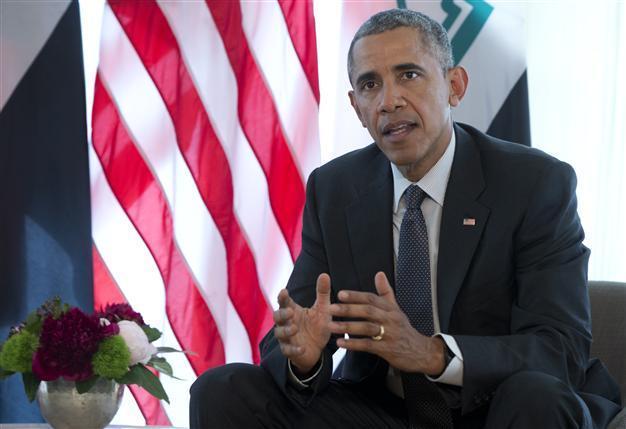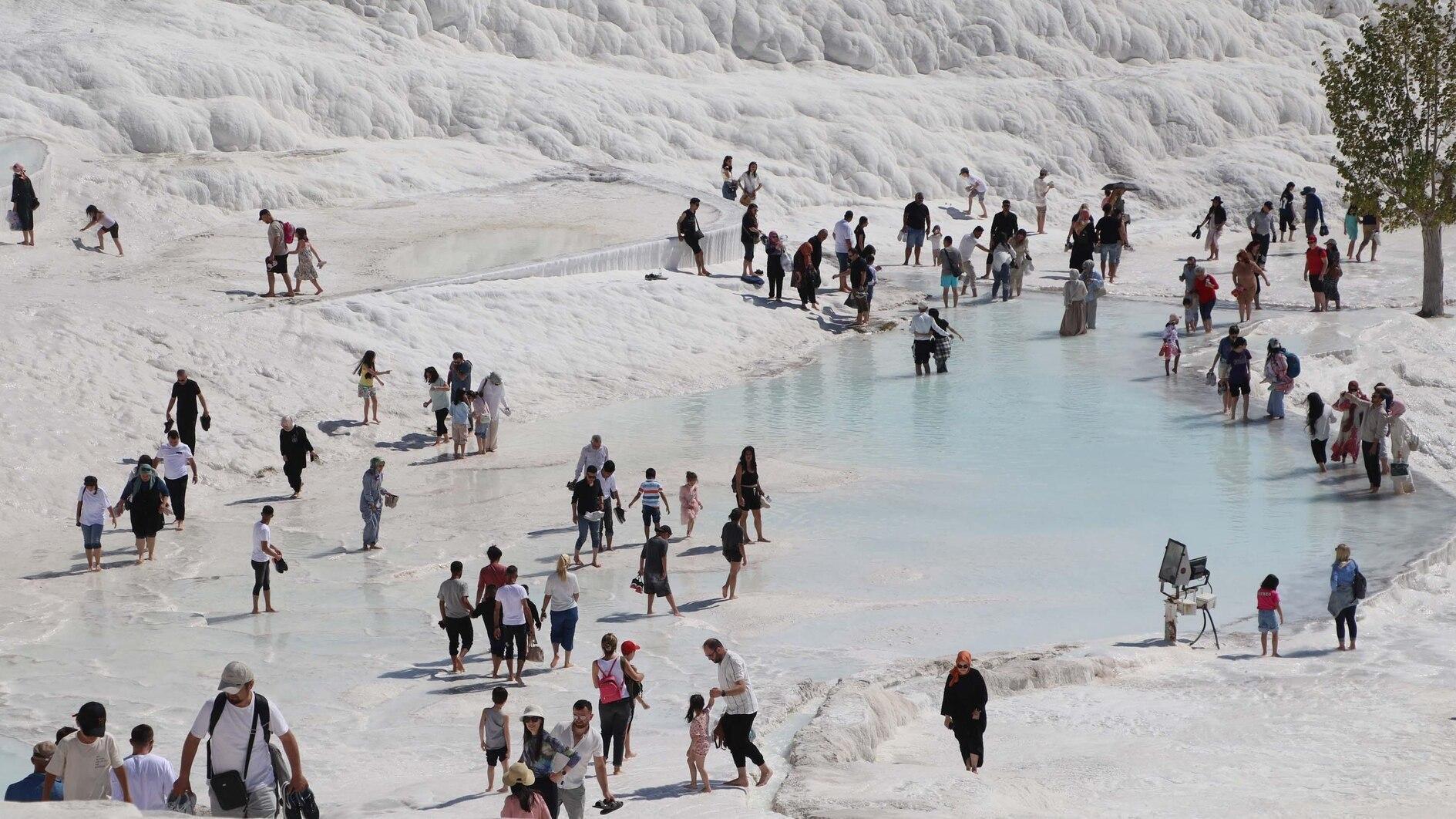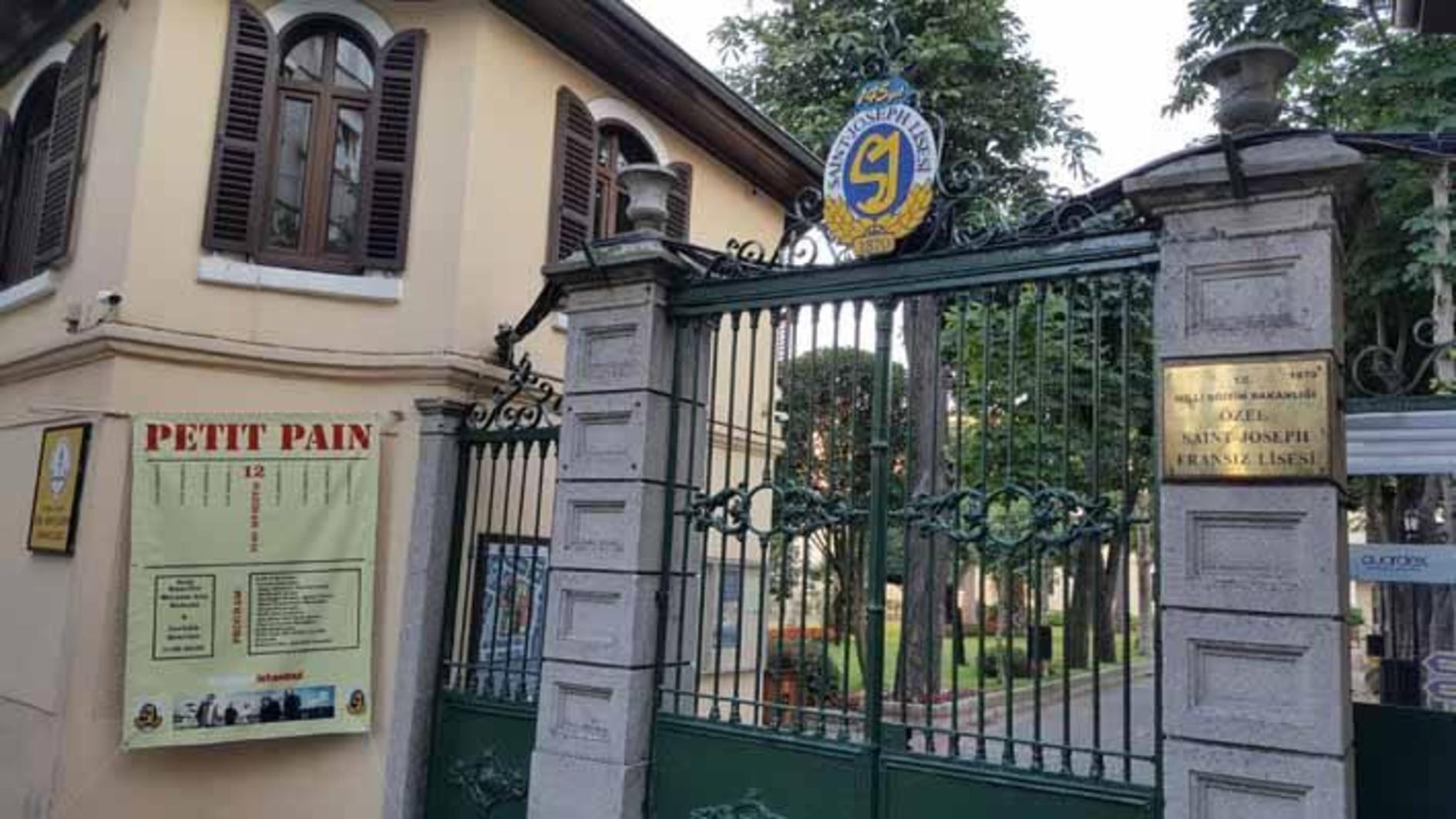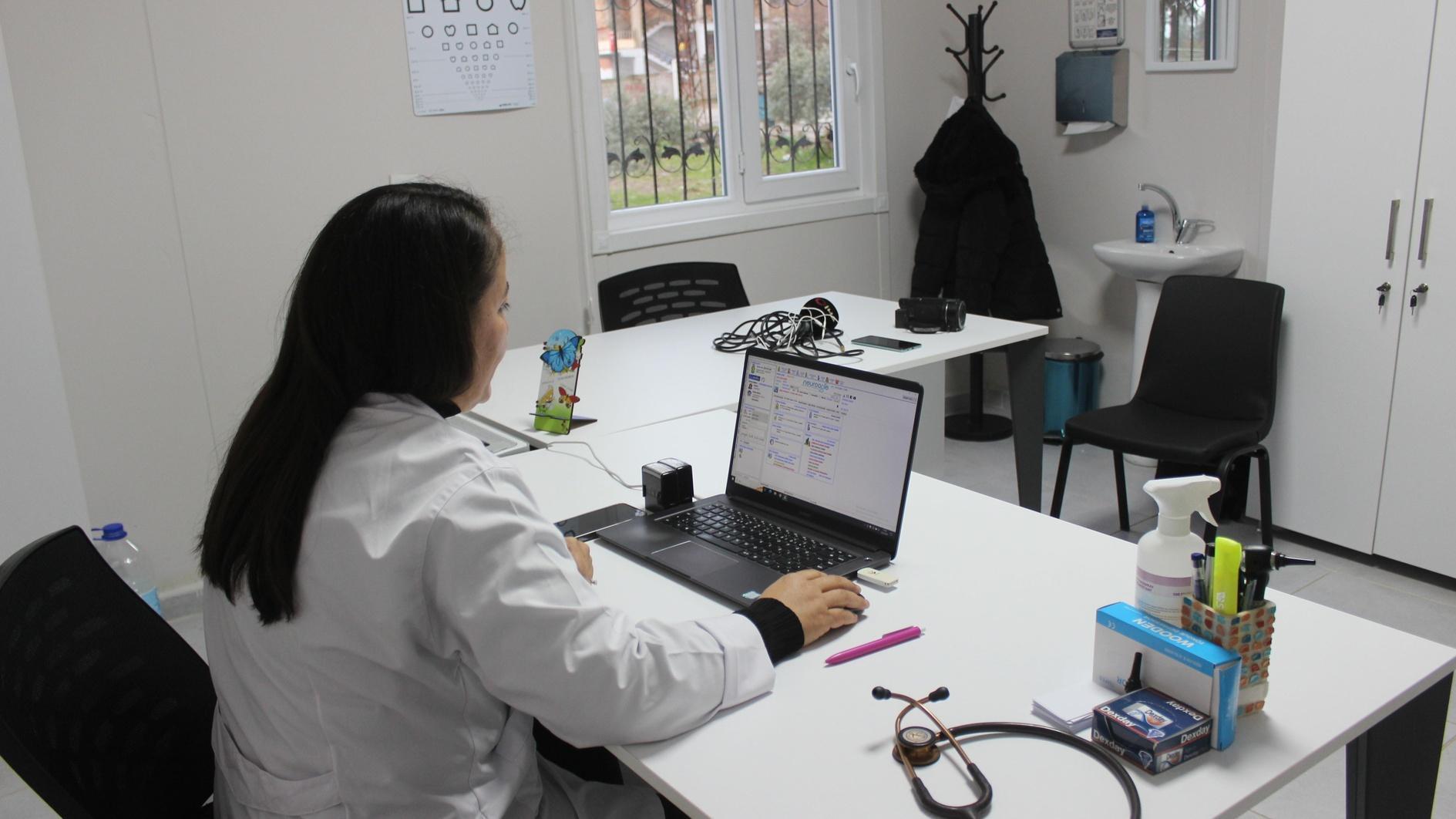Stop the flow of ISIL militants through Turkish border, Obama says
ELMAU, Germany

US President Barack Obama speaks to media during a bilateral meeting with Iraqi Prime Minister Haider al-Abadi during the G-7 summit in Schloss Elmau hotel near Garmisch-Partenkirchen, southern Germany, Monday, June 8, 2015. AP Photo
U.S. President Barack Obama has called on coalition partners to improve intelligence cooperation and coordination in order to stop foreign fighters from going abroad to join the Islamic State of Iraq and the Levant (ISIL).“We are still seeing thousands of foreign fighters flowing first into Syria, and then, often times, ultimately into Iraq. And not all of that is preventable, but a lot of it is preventable if we [foster] better cooperation, better coordination, better intelligence, and if we monitor what is happening at the Turkish-Syria border more effectively,” Obama said June 8 at the G-7 summit of the world’s wealthiest nations in Bavaria’s Elmau Castle.
He said Turkish authorities recognized the problem. “This is an area where we have been seeking deeper cooperation with Turkish authorities who recognize the problem, but have not fully ramped up the capacity they need. And this is something that I think we have got to spend a lot of time on. If we can cut of some of that foreign fighter flow, then we will be able to isolate and wear out ISIL forces that are already there,” Obama said.
Addressing a press conference following a meeting with Iraqi Prime Minister Haider al-Abadi, the American president highlighted the need to accelerate the train-and-equip program for Syrian opposition fighters, while also acknowledging problems in the program.
“We are reviewing a range of plans essentially accelerating the number of Iraqi forces that are properly trained and equipped, have a focused strategy and good leadership. ... We do not yet have a complete strategy because it requires commitments on the part of Iraqis as well about how the recruitment takes place, how that training takes place and so details of that [are] not yet worked out,” he said.
“When a finalized plan [is] presented to me by the Pentagon, then I will share it with the American people,” Obama said.
Stronger support for Iraqi army
Turkey inked an agreement with the U.S. in February to train and equip moderate Syrian opposition forces as part of the U.S.-led coalition’s effort to battle ISIL.
Foreign Minister Mevlüt Çavuşoğlu said June 4 that the train-and-equip program had already started in Turkey and Jordan, adding that it would start in Saudi Arabia and Qatar soon.
Meanwhile, Obama promised stronger support for Iraqi forces.
“We want to get more Iraqi security forces trained, fresh, well-equipped, and focused. And President Al-Abadi wants the same thing,” he said.
Obama underlined the need to isolate ISIL and include Sunni tribes in the system in order to win the fight against the extremist terrorist group.
“The political agenda of inclusion remains as important as the military fight. ... If Sunnis, Kurds and Shiites all feel as if their concerns are being addressed and that operating within a legitimate political structure can meet their need for security, prosperity, non-discrimination, then we are going to have a much easier time,” he said.
Remaining a priority
The fight against ISIL has been among the key topics of the two-day G-7 summit in Germany.
The Iraqi premier was invited as a special guest at the conference, which brought together the U.S., Germany, Britain, Canada, France, Italy and Japan.
In a joint declaration June 8, leaders of the G-7 states promised stronger cooperation in the fight against terrorism and its financing.
“In light of the Foreign Terrorist Fighters phenomenon, the fight against terrorism and violent extremism will have to remain the priority for the whole international community. In this context, we welcome the continued efforts of the global coalition to counter ISIL/Daesh,” the declaration said.
“We reaffirm our commitment to defeating this terrorist group and combatting the spread of its hateful ideology. We stand united with all countries and regions afflicted by the brutal terrorist acts, including Iraq, Tunisia and Nigeria whose leaders participated in our discussions at Schloss Elmau,” it said.
The G-7 leaders called on all countries to confront the conditions conducive to the spread of terrorism and violent extremism, including the spread of hatred and intolerance.
“The fight against terrorism and terrorist financing is a major priority for the G-7. We will continue to act fast and decisively, and will strengthen our coordinated action,” it added.
















